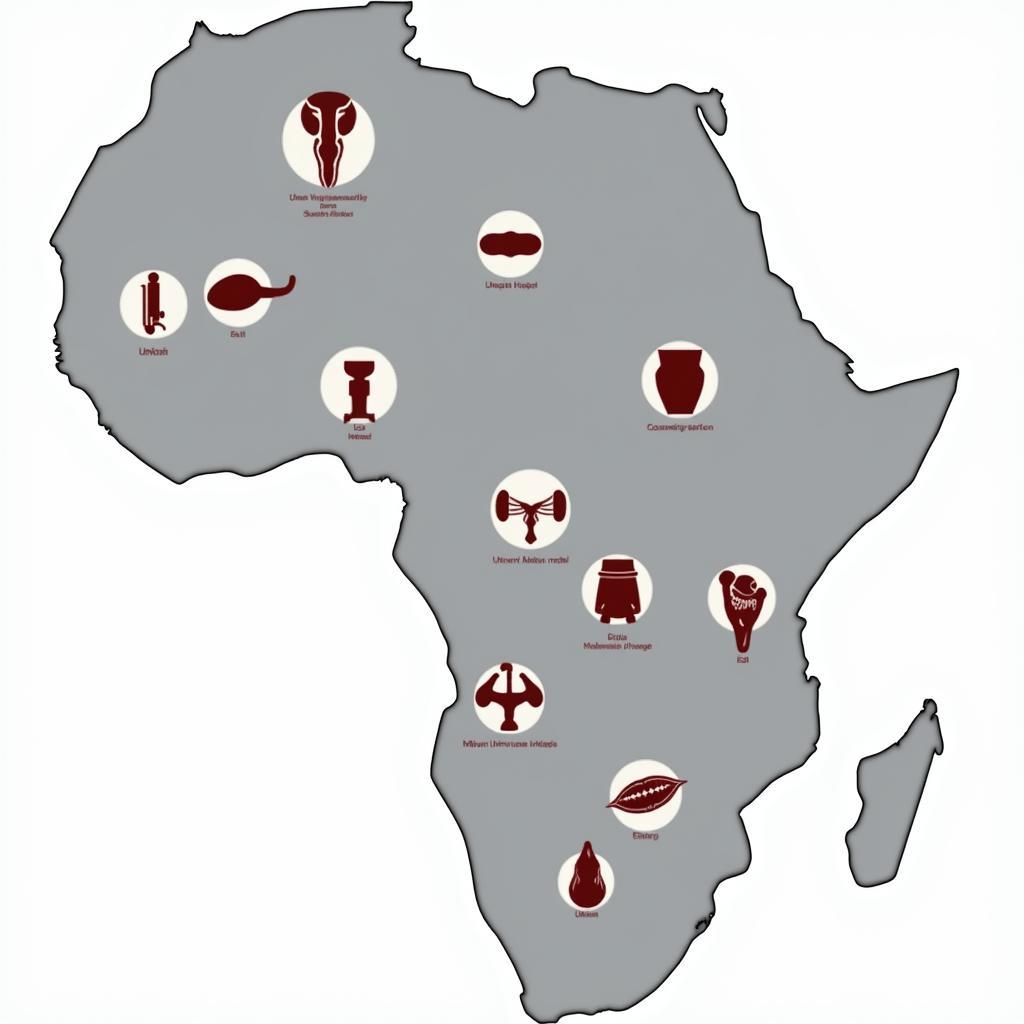Navigating Time Zones: A Guide to African Countries Timings
Understanding African Countries Timings can be a bit of a puzzle, especially considering the continent’s vastness and the multitude of time zones it encompasses. Whether you’re a business professional coordinating meetings, a traveler planning an itinerary, or simply curious about the time differences across this diverse continent, this comprehensive guide will equip you with the knowledge you need.
Demystifying Africa’s Time Zones
Africa is home to 6 time zones, spanning from UTC-1 on Cape Verde’s westernmost islands to UTC+4 in the eastern reaches of Madagascar. Unlike many other regions where time zones follow neat, longitudinal lines, Africa’s time zones are influenced by a blend of geographical and political factors.
Here’s a quick breakdown of African countries and their corresponding time zones:
- UTC-1: Cape Verde
- UTC: Gambia, Guinea-Bissau, Guinea, Mali, Mauritania, Senegal, Sierra Leone
- UTC+1: Algeria, Angola, Benin, Cameroon, Central African Republic, Chad, Democratic Republic of Congo (West), Republic of the Congo, Equatorial Guinea, Gabon, Morocco, Niger, Nigeria, São Tomé and Príncipe, Tunisia
- UTC+2: Botswana, Burundi, Democratic Republic of Congo (East), Egypt, Eswatini, Lesotho, Libya, Malawi, Mozambique, Namibia, Rwanda, South Africa, South Sudan, Sudan, Zambia, Zimbabwe
- UTC+3: Comoros, Djibouti, Eritrea, Ethiopia, Kenya, Madagascar, Somalia, Tanzania, Uganda
- UTC+4: Mauritius, Seychelles
Why are African Countries Timings So Diverse?
The diversity in African countries timings is a reflection of the continent’s history, geography, and political landscape.
- Colonial Influences: The legacy of colonialism plays a role in the current time zone configurations, as some countries retained the time zones established by their former colonial powers.
- Geographical Span: Africa’s vast east-to-west span contributes to the multiple time zones. As the earth rotates, different parts of the continent experience sunrise and sunset at different times.
- Political Considerations: Some countries have chosen specific time zones for reasons of national unity or to align with neighboring countries for economic or administrative purposes.
Navigating Time Differences for Business and Travel
Planning a virtual meeting with colleagues in different African countries? Preparing for a multi-country African adventure? Keep these tips in mind:
- Utilize Time Zone Converters: Online tools and mobile apps that allow you to effortlessly convert times between different locations are your best friends.
- Be Mindful of Daylight Saving Time: Not all African countries observe daylight saving time, so double-check if any of your destinations or contacts make this seasonal shift.
- Factor in Time for Adjustments: Traveling across multiple time zones can lead to jet lag. Schedule some buffer time into your itinerary to allow yourself to acclimate.
- Communicate Clearly: When scheduling meetings or calls, always specify the time zone to avoid confusion.
Beyond the Clock: Appreciating African Time
In many parts of Africa, the concept of time is fluid and relational, often referred to as “African Time.” This cultural perspective values relationships, flexibility, and the present moment over strict adherence to schedules.
While navigating both standardized time zones and the nuances of “African Time” might seem daunting, embracing the cultural differences is key to truly appreciating the richness and diversity of this remarkable continent.


